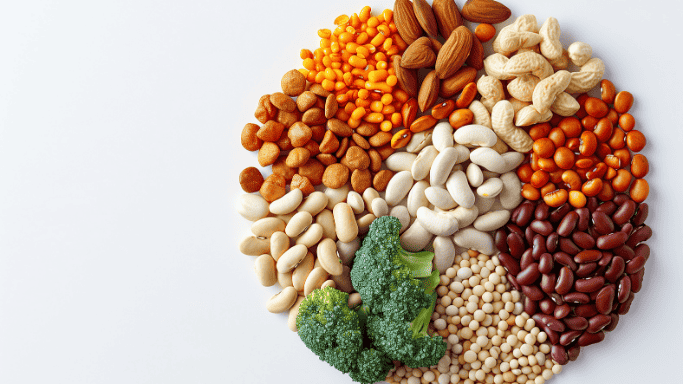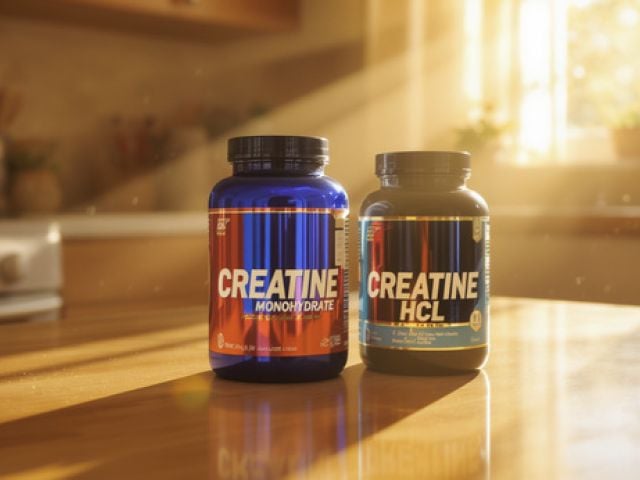
Healthiest Diet for a Long Life: 8 Simple Choices for Longevity
What if the secret to a longer, healthier life wasn’t hidden in some exotic superfood or complicated fasting protocol? Recent groundbreaking research reveals that the path to longevity lies in surprisingly simple dietary choices that anyone can follow.
A landmark 30-year Harvard study tracking over 105,000 adults discovered something remarkable. Those who followed specific eating patterns had an 86% greater likelihood of reaching age 70 in good health and were 2.24 times more likely to maintain their vitality at age 75.
The winning approach? The Alternative Healthy Eating Index (AHEI), which outperformed even the famous Mediterranean diet in promoting healthy aging.
Key Takeaways
- The Alternative Healthy Eating Index (AHEI) beats the Mediterranean diet for healthy aging
- Plant-forward eating with minimal processing delivers the strongest longevity benefits
- Blue Zones have been debunked due to poor record-keeping and age fraud
- Simple, gradual changes work better than extreme dietary restrictions
The Science Behind Dietary Patterns for Longevity

The research foundation for healthy aging through diet has never been stronger. Unlike trendy approaches that come and go, these findings represent one of the most thorough investigations into diet and longevity to date.
Interestingly, the popular Blue Zones concept has been largely debunked by recent research. Dr. Saul Newman of Oxford University, who won an Ig Nobel Prize for his work, found that many Blue Zones regions suffered from poor record-keeping and pension fraud1.
As Newman noted, “42% of the centenarians in Costa Rica turned out to be lying about their age after the study was conducted.”
This makes the Harvard research even more valuable. It relied on rigorous data collection and verified health outcomes over three decades.
8 Evidence-Based Choices for a Healthy Diet to Live Longer

The following dietary choices emerge from decades of research into what actually works for extending healthy lifespan. Each recommendation is backed by large-scale studies and real-world evidence.
1. Choose Plant Proteins Over Animal Sources
Plant-based proteins from legumes, nuts, seeds, and whole grains should anchor your meals. Research shows women who consume more plant protein in midlife were 46% more likely to age healthily, while those eating more animal protein were 6% less likely to maintain good health2.
A global study found that countries with higher plant-based protein consumption had longer adult life expectancy rates, with findings associated with lower rates of chronic disease across populations3.
Simple action: Replace one serving of animal protein daily with plant options like lentils, chickpeas, tofu, or quinoa.
2. Embrace Healthy Fats for Brain Health
Omega-3 fatty acids play an important role in healthy aging by reducing inflammation and supporting brain function. Research indicates an optimal intake threshold of approximately 1.1 grams per day, beyond which additional benefits plateau4.
These healthy fats improve mitochondrial function, which ties directly to cellular health supplements that support your body’s energy production systems.
Top sources include:
- Fatty fish twice weekly
- Ground flaxseeds or chia seeds
- Walnuts as regular snacks
- Extra virgin olive oil
3. Boost Fiber Intake for Gut Health and Longevity
Dietary fiber promotes healthy aging by supporting beneficial gut bacteria that produce protective short-chain fatty acids. Long-term high fiber intake from infancy is associated with improved gut microbiome composition in young adults5.
Most adults should target 25-35 grams of fiber daily from diverse plant sources. This whole-grain and vegetable-rich approach naturally supports the healthy eating patterns that research links to extended lifespan. Focus on getting fiber from each major food group to increase diversity.
Fiber-rich choices:
- Vegetables and fruits with every meal
- Whole grains instead of refined options
- Daily servings of legumes
- Mixed nuts and seeds
4. Avoid Ultra-Processed Foods
Ultra-processed foods accelerate biological aging beyond what poor nutrition alone would predict. Adults with higher ultra-processed food consumption showed 0.86 years of accelerated biological aging compared to those with lower intake6.
These foods promote inflammation and oxidative stress, contributing to the oxidative stress that damages cells and accelerates aging. Studies consistently show patterns associated with lower life expectancy in populations consuming more ultra-processed options.
Red flags to watch for:
- More than 5 ingredients on labels
- Unfamiliar chemical additives
- Foods that don’t resemble their original form
- Items with long shelf lives due to preservatives
5. Balance Protein Intake Based on Your Age
Protein needs change as we age, and getting this balance right affects how well we maintain muscle mass and overall health. For adults under 65, moderate protein intake (10-19% of calories) supports longevity goals.
Yet older adults benefit from higher protein intake (1.2-2.0g/kg body weight) to prevent muscle loss and frailty. This aligns with research on longevity supplements that support healthy aging at different life stages. Maintaining adequate protein intake also helps regulate body mass index as we age.
| Age Group | Protein Target | Focus |
|---|---|---|
| Under 65 | 10-19% of calories | Plant-based sources |
| Over 65 | 1.2-2.0g/kg body weight | 25-30g per meal |
6. Include Anti-Inflammatory Polyphenols Daily
Polyphenols are powerful antioxidants that combat cellular aging by reducing oxidative stress and preventing cellular senescence. These compounds are abundant in colorful fruits, vegetables, herbs, and spices.
Turmeric deserves special mention here. This golden spice contains curcumin, one of the most potent anti-inflammatory compounds found in nature. For maximum benefit, our Extra Strength Turmeric+ combines curcumin with black pepper extract, Boswellia, ginger and quercetin to increase absorption by up to 2000%.
Daily polyphenol sources:
- Mixed berries
- Dark leafy greens
- Green tea
- Extra virgin olive oil
- Herbs like turmeric and oregano
7. Practice Moderate Caloric Awareness
Recent research confirms that genetic resilience matters more than extreme caloric restriction for longevity. The mice that lived longest on restricted diets were those that maintained their weight and immune function despite eating less7.
This suggests moderate caloric awareness (10-20% reduction) may be more beneficial than severe restriction for most people. This approach helps maintain healthy body mass index ranges without the metabolic stress of extreme dieting.
Focus on nutrient density rather than extreme calorie cutting. Listen to your body’s hunger and satiety signals while choosing foods that deliver maximum nutrition per calorie.
8. Consider Timing Your Eating Windows
While extreme time-restricted eating (under 8 hours) may increase cardiovascular disease risk, moderate approaches can provide metabolic benefits when combined with a healthy diet.
Research suggests 10-12 hour eating windows offer the best balance of benefits without negative health impacts. The key lies in consistency and ensuring adequate nutrition within your chosen timeframe.
If you try time-restricted eating:
- Maintain 10-12 hour eating windows
- Prioritize food quality over timing restrictions
- Focus on getting all important nutrients
- Monitor how you feel and adjust accordingly
The Mediterranean Diet Connection

Both the AHEI and Mediterranean approaches share similar foundations for promoting longevity. The Mediterranean diet remains one of the most studied dietary patterns for longevity, though the AHEI approach edges it out in recent research.
Both dietary patterns emphasize whole foods, healthy fats, and moderate portions while limiting processed foods and excessive red meat consumption. The Mediterranean approach offers a time-tested method that many find easier to follow long-term.
These dietary patterns work together with lifestyle factors that support healthy aging, including stress management and maintaining NAD levels by age for optimal cellular function.
Public Health Impact of Longevity Nutrition

The implications for public health are notable. If more people adopted these evidence-based dietary patterns, we could see important reductions in chronic disease rates and healthcare costs.
Research consistently shows that populations following these principles have a lower risk of heart disease, type 2 diabetes, and all-cause mortality. This creates a powerful case for promoting these dietary approaches at the community level.
The focus on whole foods and plant-forward eating also supports environmental health, creating benefits that extend beyond individual longevity.
Putting This Into Practice

Making lasting changes doesn’t require dramatic overhauls. Start with one change per week rather than overhauling your entire diet overnight. The research shows that dietary patterns matter more than individual nutrients, so aim for gradual, sustainable improvements.
Week-by-week approach:
- Week 1: Add one plant protein meal daily
- Week 2: Include healthy fats with each meal
- Week 3: Boost fiber with whole grains and vegetables
- Week 4: Eliminate one ultra-processed food
This gradual approach helps create lasting habits that support long-term health goals.
Beyond Diet: The Complete Longevity Picture

While diet forms the foundation of healthy aging, it works best as part of a complete approach. Regular physical activity, stress management, quality sleep, and maintaining social connections all contribute to longevity.
Supporting your body’s natural aging processes with anti-aging vitamins and minerals can complement these dietary choices for optimal results.
The evidence is clear: a plant-forward, minimally processed dietary pattern rich in fiber, healthy fats, and polyphenols provides the strongest foundation for healthy aging. These choices, backed by decades of rigorous research, offer a practical pathway to not just living longer, but living better.
By focusing on these eight simple choices, you’re not just adding years to your life – you’re adding life to your years. The research shows that it’s never too early or too late to start making these changes that can transform how you age.
Referenced Sources:
- https://www.aljazeera.com/news/2024/9/26/the-secret-of-blue-zones-where-people-reach-100-fake-data-says-academic ↩︎
- https://hsph.harvard.edu/news/plant-protein-women-healthy-aging/ ↩︎
- https://www.sciencedaily.com/releases/2025/04/250415144002.htm ↩︎
- https://www.asbmb.org/asbmb-today/science/080125/omega-3-fats-linked-healthy-aging-metabolism ↩︎
- https://www.medicalnewstoday.com/articles/short-term-increase-in-fiber-alters-gut-microbiome ↩︎
- https://www.medicalnewstoday.com/articles/ultra-processed-foods-may-accelerate-biological-aging-2 ↩︎
- https://www.jax.org/news-and-insights/2024/october/study-probes-how-eating-less-can-extend-lifespan ↩︎

Get weekly health insights and exclusive offers by joining our newsletter.










